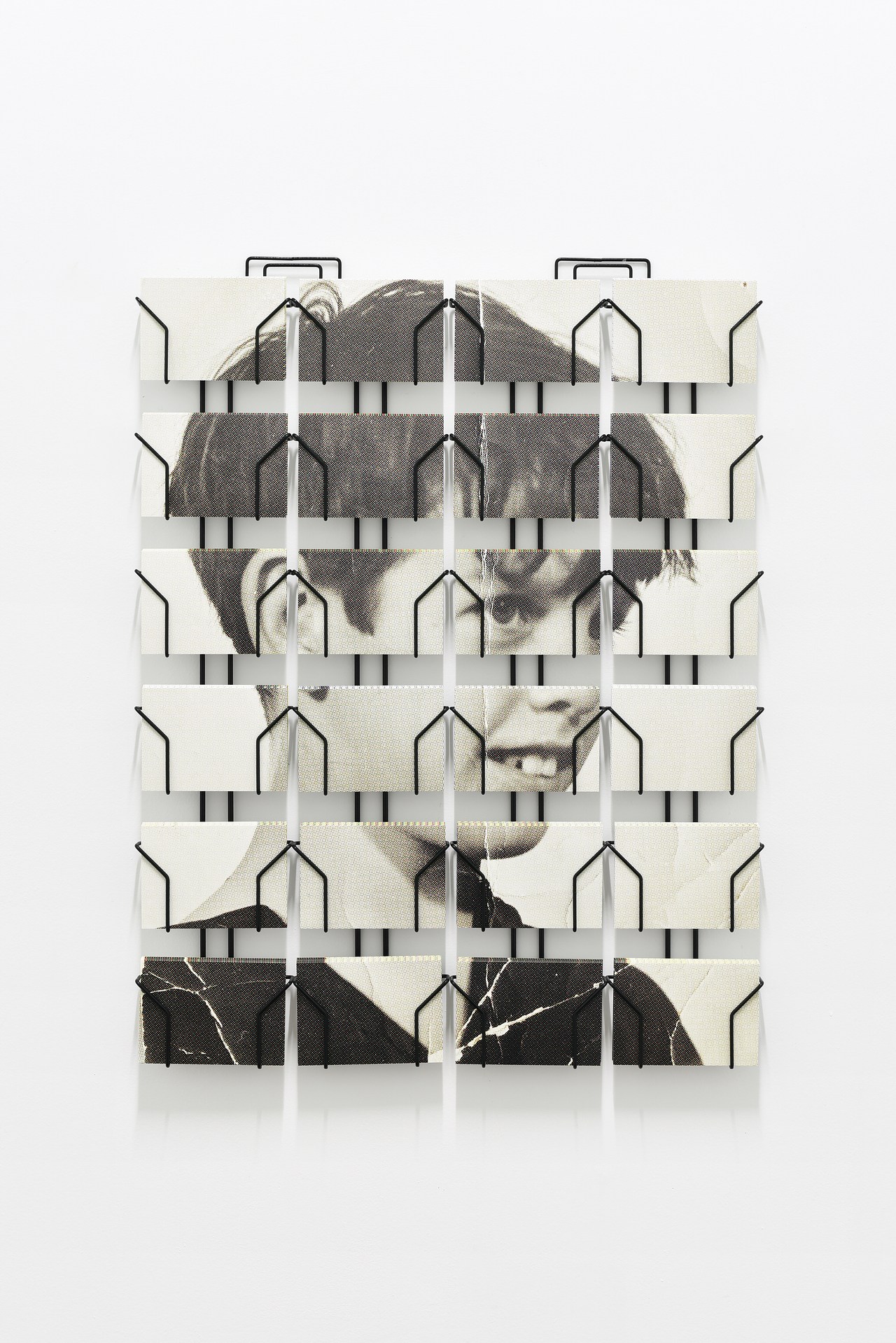Nachbau
2007 - Photography (Photography)
72.8 x 64.8 x 4.5 cm
Simon Starling
Invited in 2007 to the Museum Folkwang in Essen (Germany), Simon Starling questioned its history: known for its collections and particularly for its early engagement in favor of modern art (including the acquisition and exhibition of works by Cézanne, Gauguin, Van Gogh, Matisse), then destroyed during the Second World War, the museum was pillaged for its masterpieces of ‘degenerate art’ by the nazis. Starling found photographs of a hang dating back to 1929, taken by Albert Renger-Patzsch, the German New Objectivity photographer. Firstly, he researched the artworks that were presented then which for the most part had been restituted or acquired by private collectors after the war. Secondly, he reconstituted this hang. Finally, he took the same pictures as Renger-Patzsch, with the same ‘scientific objectivity’. The result is simple and minimal, and tends to erase any difference with the original. Playing on the notion of author, Starling identically reconstructs (‘Nachbau’ means reconstruction in German), thus he realizes an exact replica of the photographs taken seventy years earlier. By blurring temporalities, the artist manipulates the history of the collections and questions the outcome of the images and the institution in light of this actual reconstruction in the museum. This work can also be understood as an absurd attempt to go back in time in order to correct history.
Simon Starling provokes unexpected crossings between objects, materials and events. He produces hybrid works that seem to come from another space-time continuum. In 1995, he used the aluminium from a chair designed by Jorge Pensi to reproduce nine copies of a beer can found on the Bauhaus site in Dessau, thus creating a condensed history of design in a rather trivial object, turning a piece of rubbish found by chance into the clue of a historical lineage neither absurd nor authentic. While avoiding formal creation ex nihilo, the artist paradoxically behaves like a true demiurge. His works imply processes of metamorphosis quite similar to alchemy. He appropriates forms and objects and integrates them into complex networks of meaning which do not aim at revealing a hidden history but rather at drawing unseen paths that ultimately exist only because of his intervention. Simon Starling was born in 1967 in Epsom, UK. He lives and works in Copenhagen and Berlin.
Colors:
Related works featuring themes of: » Artist as Ethnographer, » Artists' Books, » Collective History, » Color Photography, » British

© » KADIST
Bani Abidi
2008The threshold in contemporary Pakistan between the security of private life and the increasingly violent and unpredictable public sphere is represented in Abidi’s 2009 series Karachi ...

© » KADIST
Bani Abidi
2012The perceived effortlessness of power, projecting above experiences of labored subordination is examined in Death at a 30 Degree Angle by Bani Abidi, which funnels this projection of image through the studio of Ram Sutar, renowned in India for his monumental statues of political figures, generally from the post-independence generation...

© » KADIST
Enrique Ramirez
In Un Hombre que Camina (A Man Walking) (2011-2014), the sense of rhythm and timing is overpowered by the colossal sense of timelessness of this peculiar place...

© » KADIST
Glenn Ligon
2000Glenn Ligon’s diptych, Condition Repor t is comprised of two side-by-side prints...

© » KADIST
Vincent Leong
2012The photograph Exquisite Eco Living is part of a larger series titled Executive Properties in which he digitally manipulated the images to insert iconic buildings of Kuala Lumpur in the view of derelict spaces also found in the city...

© » KADIST
Allen Ruppersberg
1970Untitled (City Limits) is a series of five black-and-white photographs of road signs, specifically the signs demarcating city limits of several small towns in California...

© » KADIST
Daniel Joseph Martinez
2005Martinez’s sculpture A meditation on the possibility… of romantic love or where you goin’ with that gun in your hand , Bobby Seale and Huey Newton discuss the relationship between expressionism and social reality in Hitler’s painting depicts the legendary Black Panther leaders Huey P...

© » KADIST
Tacita Dean
2001The photographic quality of the film Baobab is not only the result of a highly sophisticated use of black and white and light, but also of the way in which each tree is characterized as an individual, creating in the end a series of portraits...

© » KADIST
Charles Avery
2012Since 2005, Charles Avery has devoted his practice to the perpetual description of a fictional island...

© » KADIST
Rosalind Nashashibi
2019Rosalind Nashashibi’s paintings incorporate motifs drawn from her day-to-day environment, often reworked with multiple variations...

© » KADIST
Wong Hoy Cheong
2009Days of Our Lives: Reading is from a series of work was created for the 10th Biennale de Lyon by the artist...

© » KADIST
Wong Hoy Cheong
2009Created for the tenth Lyon Bienniale, in Days of Our Lives: Playing for Dying Mother, Wong’s ongoing negotiation of postcolonial globalization takes aim at French society...

© » KADIST
Bani Abidi
2008The threshold in contemporary Pakistan between the security of private life and the increasingly violent and unpredictable public sphere is represented in Abidi’s 2009 series Karachi ...







